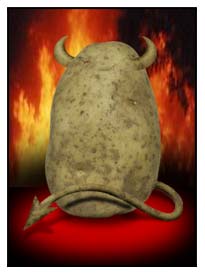
 Based on a lot of questions I receive I think it is safe to say there is plenty of confusion about carbohydrate intake so I thought I would shed a little light on the subject.
Based on a lot of questions I receive I think it is safe to say there is plenty of confusion about carbohydrate intake so I thought I would shed a little light on the subject.
As I always tell my clients, carbohydrates are neither good nor bad but they all have a glycemic index rating and you just need to understand how to select and time them correctly.
Carbohydrates are an essential nutrient for building muscle and burning fat. All carbohydrates are converted into sugar when you ingest them and that happens at various rates. The glycemic index (GI) rating of carbohydrates measures the rate at which this process happens. If a carbohydrate has a high GI rating it is converted into sugar rapidly. Conversely if it has a low GI rating it is converted into sugar slowly. Most of the day you want low GI rated carbohydrates but there are a couple specific times of the day where high GI rated carbohydrates are preferred.
The carbohydrate selection and timing principles are pretty simple. In a nut shell you want to choose high GI carbohydrates upon waking, directly before and after your workout in the form of a pre and post workout drink and consume high GI carbohydrates during the 3 hour window that follows your workout. The rest of the day you want low GI carbohydrates. (Note – High GI carbohydrates should follow your workout no matter what time of day that is. There is no danger eating carbohydrates in the evening if it follows your intense workout.)
For further insight on the topic I’ve included the following excerpt from my book “Inside the Mind of a Champion” titled Carbs Are Not The Devil: Maintain Smart Carbohydrate Selection And Timing Throughout Your Pre-Contest Diet
“……I’ve paid closer attention to post-workout nutrient timing this year more than any other. I’ve eaten more high GI carbohydrates and consumed more total calories within the 3 hour post workout time period. The result is I am bigger and leaner at 15 weeks out from a show than ever before.
I know this goes against typical bodybuilding ideology. More carbs should not equal a leaner physique according to the annals of pre-contest dieting. But when approached correctly, that is exactly what it can mean.
If you are selecting and timing your carbohydrates correctly, it will help you build and maintain muscle all the way through your pre-contest diet. The more muscle you build and maintain the higher your resting metabolic rate will be and this is obviously a desired effect for anyone trying to get as lean as possible. If you strictly reduce your calories from carbs and don’t consume the right carbs at the right times you’ll be setting yourself up for unnecessary muscle loss and thereby slow your metabolism……”
The moral of the story is don’t fear carbohydrates. You need them. You need them to build muscle and you need them to burn fat. The key is not avoiding them but rather selecting and timing them correctly.




Nice write up Jeff, no fluff simple and to the point. something funny happened last week in the gym; I just got finished with my workout (max-it of course) and I was chowing down on half of a cantaloupe when this dude walked up to me and said ” oh man you just worked out for nothing” (me) “what do you mean?” (him) “that melon is so fattening” I just have him a big smile and walked away. I wish you would write more Jeff…its all about the timing folks.
http://www.twitter.com/bobbyraymedina
Thank you so much for this great and helpful post!
I am a bit confused though. Let’s say I do Max-OT Cardio in the morning and Max-OT weight training in the evening. Am I then supposed to eat high GI carbohydrates 5 times a day? (Upon waking, before and after cardio and before and after weight training.)
Also, what pre and post workout drinks would you recommend?
Thank you!
In that scenario where cardio is split from weight training I would not do a pre and post cardio drink. Only a post cardio drink with high GI carbs and protein then I would switch to low GI carbs until your workout and then follow the pre/post drinks with the 3 hour post workout window carb timing.
Hello Jeff,
I bought Stuarts Nutrition plan and he eats Oatmeal upon waking with VP2. But Oatmeal has a low GI rating and you recommend to consume high GI carbs. Do I misunderstand something?
Best regards,
Arthur
Regular oatmeal like most of us eat is still higher GI than rolled oats or steel cut oats. It still works fine as the carb source 1st thing in the AM. My favorite, however, is regular old breakfast cereal.
Great article. Clearly states what carbs are and how to use them for optimum results. Thanks a lot Jeff.
Just a quick clarification Jeff. In your other writings you preach not to do cardio in a fasted state but above you admonish to only do a post cardio drink and not pre-cardio. Does that mean you should still eat protein before cardio but no carbs or am I just confusing things? Thanks Jeff
Yes, never do cardio on an empty stomach.
I think you are confusing things. My basic point is if you are doing cardio and weights at 2 seperate times of the day you don’t need a pre cardio drink and a post cardio drink along with a pre workout and post workout drink. I wold fit the cardio session in between regularly scheduled meals and follow it with a post cardio drink. So if cardio is performed in the morning I would have my first meal of cereal and protein and then perform cardio sometime after.
Got it. Makes total sense. Thanks Jeff
Hey Jeff are rice cakes good to use for high GI carbs, if so is it preferable to have the rice cakes before or after a workout?
Yes, the would suffice as a high GI carb in the pre and post window.
Just wondering if it’s alright to use juice as the pre/post workout high GI carb or is actual food preferred?
I think any high GI sugary liquid like juice will work.
Hi Jeff! I ‘m doing the carb cycling diet, and after lunck has no more carbs. I do the max ot work out in the morning and run at night (30 min – moderate). I read about your max ot cardio and i have some questions: Should I include carbs in my low carb day in order to do max ot cardio? Can I do max ot cardio just having fat and protein or it is going to burn my muscles instead of my bodyfat??
I always prefer to have carbohydrates prior to intense exercise. I really don’t have any experience with carb cycling diets.
Hi Jeff, how much carbohydrates should I consume before and after training Max Ot?
That’s a good question. In general you want about 35% of your total calories coming from carbohydrates and you want the majority of them coming within the pre and post workout bubble. I recommend checking out the nutrition plan downloads on my premium site to see exactly how the nutrition plan is structured. http://www.jeffwilletpremium.com